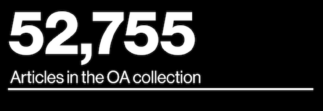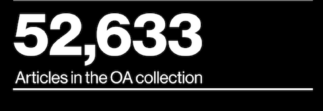The MIT Libraries and the Royal Society of Chemistry have signed a groundbreaking license agreement that incorporates elements of a traditional subscription purchase and open access to scholarly articles. The experimental two-year agreement is seen as an important step on the path toward making more research freely and openly available to the world.
The new agreement combines traditional subscription-based access to Royal Society of Chemistry articles for the MIT community with immediate open access to MIT-authored articles, making them freely available to all audiences at the time of publication. It is the first of its kind among North American institutions.
“This is an important move toward the kind of transformation we want to see in the scholarly communication landscape,” says Chris Bourg, director of the MIT Libraries and co-chair of the Institute’s Task Force on Open Access to MIT Research. “Working with a partner like the Royal Society of Chemistry, which shares many of our values, helps us evolve toward new business models that better align with our mission.”
The agreement, known as “read and publish,” will run through 2019. Through the agreement, articles published in Royal Society of Chemistry journals by MIT corresponding authors during this period will be made openly available at the time of publication at no cost to the author. The aim of the offsetting agreement is that, over time, as more universities adopt this type of contract, the proportion of paywalled articles will decline and funding will shift to supporting open access to research.
Emma Wilson, director of Publishing at the Royal Society of Chemistry, says: “It’s exciting to enter into this agreement with MIT Libraries, to support them towards their open access goals, as we do for partners in a growing number of countries around the world.”
“We are a not-for-profit publisher of high-quality chemical science content, our aim is to sustainably disseminate this research and information. As part of our commitment to sustainable open access publishing, we work with individual institutions to agree content deals specific to their needs.”
In order to encourage this overall transition to open access, MIT and the Royal Society of Chemistry collaborated on significant new language in the agreement, signaling the Royal Society of Chemistry ’s commitment to a fully open access publishing model in the future. The agreement affirms that the current read and publish model is a “transitional business model whose aim is to provide a mechanism to shift over time to full open access.” Making this successful transition to full open access will require collaborations across universities.
“Pursuing our goals for making research and scholarship more widely accessible requires working more collaboratively,” says Greg Eow, associate director for collections at MIT Libraries. “We hope our peer institutions will join us in experimenting with new publishing models and helping to move the dial toward openness.”
The Royal Society of Chemistry is the world’s leading chemistry community, advancing excellence in the chemical sciences. With over 50,000 members and a knowledge business that spans the globe, we are the UK’s professional body for chemical scientists; a not-for-profit organisation with 175 years of history and an international vision for the future. We promote, support and celebrate chemistry. We work to shape the future of the chemical sciences – for the benefit of science and humanity.
The MIT Libraries are an engine for creating, sharing, and safeguarding knowledge at the Institute and beyond.The Libraries envision a world where enduring, abundant, equitable, and meaningful access to information serves to empower and inspire humanity.


